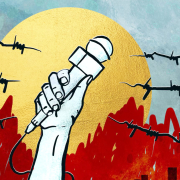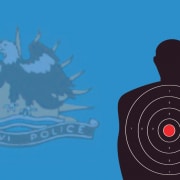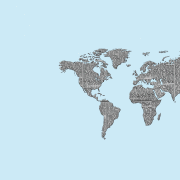|
Getting your Trinity Audio player ready...
|
Image: Flickr / Rachel Hinman
With World Press Freedom Day (WPFD) 2023 upon us again, its custodian, the UN Educational, Scientific and Cultural Organization (Unesco), names four fundamental freedoms which are outlined in the Preamble of the 1948 Universal Declaration of Human Rights: freedom of speech, freedom of belief, freedom from fear, and freedom from want.
“It is not incidental that freedom of speech comes first: this fundamental freedom is one that enables all others,” says the global organisation. “In the Universal Declaration, freedom of opinion and expression has been further detailed in Article 19 as the right to seek, receive and impart information and ideas through any media and regardless of frontiers.”
Freedom of speech, of course, is essential in the fight against corruption, because people must be free to speak out and bring any shady activities to light without fear or threat. Sadly, around the world this is by far not the case. In order to make freedom of expression a reality, says Unesco, there must be:
- a legal and regulatory environment that allows for an open and pluralistic media sector to emerge;
- a political will to support the sector and rule of law to protect it;
- laws ensuring access to information, especially information in the public domain; and
- the necessary media literacy skills among news consumers to critically analyse and synthesise the information they receive to use it in their daily lives and to hold the media accountable for its actions.
This year’s WPFD event, therefore, is held under the theme of Shaping a Future of Rights: Freedom of expression as a driver for all other human rights, Unesco further states that since the Universal Declaration was adopted back in 1948 – 75 years ago – the right to freedom of expression has been further affirmed and enshrined in numerous international instruments; the 1966 International Covenant on Civil and Political Rights, the 1989 Convention on the Rights of the Child, and the 2006 Convention on the Rights of Persons with Disabilities, among many other global and regional standards.
In its concept note for WPFD 2023, Unesco presents a compelling argument for the role of freedom of expression as a fundamental enabler of other human rights. It says:
“While all human rights are universal, interdependent, indivisible and interrelated; freedom of expression’s function as an enabler for other human rights has been further explored by relevant United Nations treaty bodies and committees in charge of international instruments, who published their interpretation of provisions in the form of general comments or recommendations.
For instance, General Comment No. 21 on the 1966 International Covenant on Economic, Social and Cultural Rights underlines how freedom of expression underpins the right to participate in cultural life. General Comment No. 34 on the International Covenant on Civil and Political Rights stresses the interdependency of the rights to opinion, expression and participation in public affairs; as well as the fact that ‘freedom of expression [is] a necessary condition for the realis ation of the principles of transparency and accountability that are, in turn, essential for the promotion and protection of human rights‘.
“The complementarity of freedom of expression with other human rights has similarly been acknowledged in the 1993 Vienna Declaration and Programme of Action on human rights, whose 30th anniversary is commemorated this year, and which underscores linkages between freedom of expression, the rule of law, the administration of justice, freedom of thought and religion, and participation in decision-making processes. The adoption of this Declaration and Programme of Action also led to new measures to protect the rights of women, children and indigenous peoples, and permitted the establishment of the Office of the High Commissioner for Human Rights the same year.
“With media freedom as an essential part of freedom of expression, 2023 also marks the 30th anniversary of the proclamation of World Press Freedom Day by the 48th UN General Assembly, following a resolution by Unesco’s 26th General Conference. Over the course of the last three decades, the global movement celebrating World Press Freedom Day has grown in scale and provided an inclusive platform to reaffirm the fundamental role of free, independent, pluralistic media; to take stock of the challenges facing media freedom and the safety of journalists; to raise awareness and foster partnerships to defend media from attacks; as well as to pay tribute to journalists who have lost their lives in the exercise of their work.
“Furthermore, recalling that 1993 saw a landmark alignment of multilateral consensus around the importance of human rights, press freedom and freedom of expression, 2023 will also mark the 30th anniversary of the establishment of the mandate of the UN Special Rapporteur on the promotion and protection of the right to freedom of opinion and expression by the United Nations Commission on Human Rights.
“On the 30th anniversary of these important landmark events, and as we venture into the last decade for the fulfilment of the Sustainable Development Goals of Agenda 2030, World Press Freedom Day 2023 provides an opportunity to emphasise the role of freedom of expression and media freedom as enablers of all other human rights, and to underscore the indivisible, interdependent, and interrelated nature of all human rights.”








